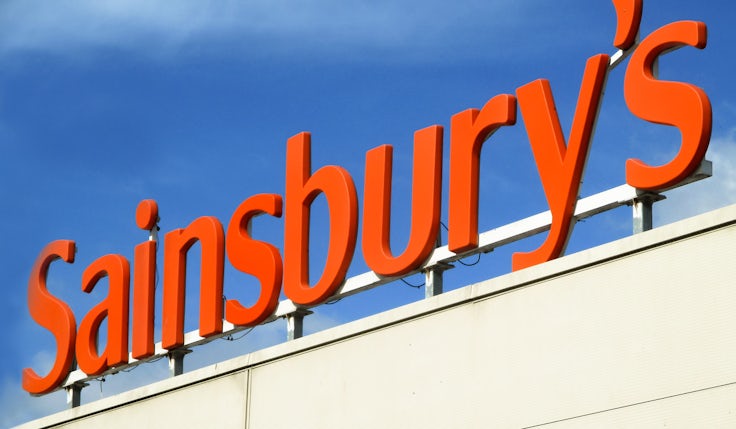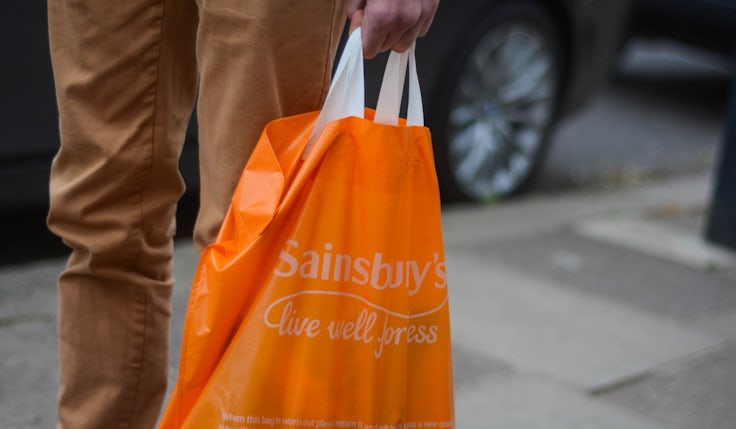Sainsbury’s commits to further investment in value as it fights to maintain market share
The supermarket says initial take up of its Nectar Prices scheme launched earlier this month, has been “way ahead” of expectations.
 Sainsbury’s is now the “most competitive” it has been in years, it claims, having invested £560m in keeping prices low over the past two years.
Sainsbury’s is now the “most competitive” it has been in years, it claims, having invested £560m in keeping prices low over the past two years.
The supermarket has pledged to continue to invest in its value proposition, believing this has been central to it maintaining market share.
“We’re absolutely committed to retaining our relative value position,” CEO Simon Roberts told media on a call today (27 April).
In December, Sainsbury’s said it would invest £550m into lower prices by March 2023, meaning it has now spent an additional £10m. While Roberts said the company has “a lot of activity planned this year” to continue its commitment to value, he would not confirm how much it planned to invest in its new financial year.
“Judge us by our competitiveness and our value,” he said, pointing to the Nectar Prices initiative launched by the supermarket earlier this month as well as the Pocket Friendly Prices value proposition it has launched in Sainsbury’s Local convenience stores.
When asked whether the figure over the next two years was likely to be on par with the £560m invested, he acknowledged that two years ago the supermarket “had a lot to do to become more competitive”.
Sainsbury’s has moved forward significantly over the past two years, meaning its job now is to sustain its value position, he said.
Sainsbury’s currently has a 14.9% share of the grocery market, according to the latest data from Kantar, down by 0.1 percentage point compared to April 2022.
Sainsbury’s saw statutory profits after tax fall 69% to £207m in its financial year, which ended on 4 March 2023. Chief financial officer Bláthnaid Bergin said the fall in profits reflected the supermarket’s investments in value and price.
It did see sales rise 5.4% versus last year, to £35.16bn. Revenues also rose by 5.3% to £31.49bn in the year.
‘Encouraging’ early reaction to Nectar Prices
Earlier this month, Sainsbury’s followed Tesco in introducing exclusive prices on some products for its loyalty card members under a new Nectar Prices initiative.
Today, Roberts told media the “strength of reaction” to the introduction had been very encouraging, and that take-up of the initiative, as well as sign-ups to the loyalty scheme, had been “way ahead of what [it] expected”.
The scheme has not yet been rolled out to Sainsbury’s Local convenience stores, but Roberts said the next stage of Nectar Prices would be to introduce personalised offers online rather than launching in local stores.
The strategy behind the initiative is to encourage “secondary customers to come back and do a bigger shop” at a Sainsbury’s supermarket, hence the focus on the full-size stores and online.
While rival Tesco now delivers much of its promotions through its Clubcard Prices, Roberts asserted that “the unique power of Nectar really comes alive” through personalisation. The company is focused on both its personalised loyalty discounts under ‘Your Nectar Prices’, as well as the regular Nectar Prices, which are available to all members, he said.
Sainsbury’s takes on Tesco Clubcard with Nectar Prices launch
As price rises continue amid inflationary pressures, consumers have been turning to private-label products. The latest figures from Kantar show own-label sales were up by 13.5% year-on-year for the four weeks to 16 April 2023. The very cheapest value private label lines grew by even more, up 46% year-on-year, according to Kantar.
For Sainsbury’s, the behaviour of customers trading into its own-label ranges has “definitely accelerated over the last few months”, Roberts told Marketing Week. He said its entry-level own-brand ranges have been particularly popular.
“You’ll see us do more work on entry price points over the coming weeks and months,” he stated.
While it is uncertain whether food inflation has yet peaked, it seems set to do so in the next 12 months. There are signs businesses are beginning to slow on price increases, with Unilever today stating it had made price increases of 10.7% in its latest quarter, versus 13.3% in the previous period.
Looking to the next six to 12 months, Roberts said it is “hard to predict how [consumer behaviours] will settle”, but stated the supermarket is investing in the quality as well as the value of its own-brand offerings.
He pointed to innovation in these ranges, where the company exceeded its targets by 15% in the year. The company expanded its premium Taste the Difference label by almost one third (33%) in the year, and sales of the range are up 16% versus pre-pandemic.








Comments